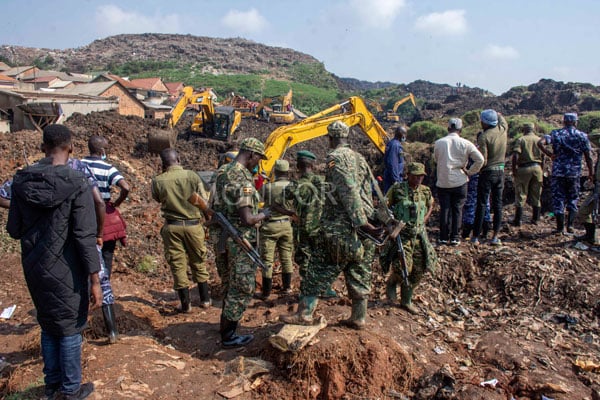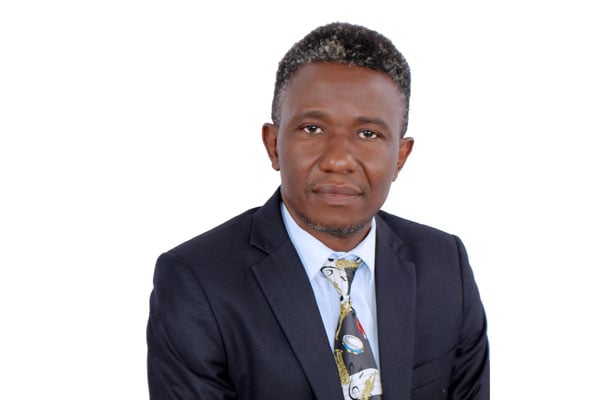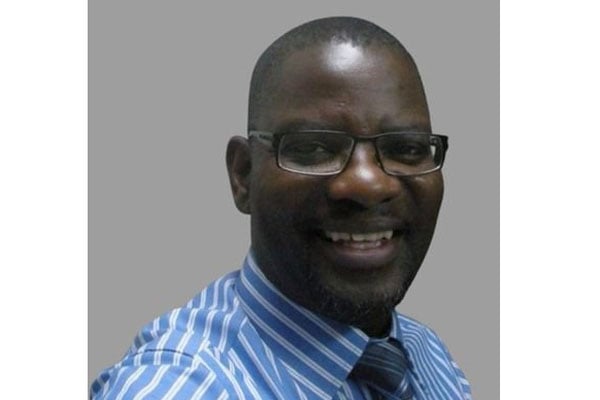
Mr Muniini K. Mulera
Dear Tingasiga:
In the aftermath of the deadly collapse of the garbage mountain at Kiteezi near Kampala, President Museveni asked: “Who allowed people to live near such a potentially hazardous and dangerous heap?” I believe the President asked this question in good faith. It was another reminder that his dream to modernise Kampala had become a nightmare.
The President didn’t need the Kiteezi disaster to tell him that millions of Ugandans were living in dangerous physical environments, a phenomenon that will be a major part of his legacy. Our President, who has crisscrossed the country numerous times in his four decades in power, has watched citizens and foreigners invade wetlands, rivers, lakes, hillsides, forests, nature’s drainage systems, game reserves, and so much else.
Our President has watched the progressive uglification of Kampala, Entebbe and nearly all our country’s previously planned towns. He has watched Kampala’s drainage channels blocked by “developers” who have placed their personal wealth above public health. Anarchy masquerading as development has become the norm in a country that the British colonial rulers had left on a good path to become one of the best planned and organised in the region. Even the once beautiful junction where the road from the President’s home in Rwakitura joins the Masaka-Mbarara Highway has become an unplanned eyesore that will soon become a town, without safe sanitation and solid waste management.
To his credit, President Museveni once had a dream of a modernised, beautiful and efficiently managed Kampala. Whereas he was driven by a desire to wrest control of Kampala from his political opponents, Mr Museveni’s decision to create a well-funded and professionally led administration of Kampala was one of his most admirable measures. The Kampala Capital City Act, 2010, formalised the creation of Kampala Capital City Authority (KCCA) in 2011. He appointed a dream team of Ms Jennifer Semakula Musisi as executive director and Dr Judith Tukahiirwa Tumusiime as the deputy executive director at KCCA. He supported and encouraged them.
Ms Musisi and Dr Tumusiime hired professionals in different departments and applied scientific management methods to develop an efficiently run city. Dr Tumusiime, a world-class expert in her field, embarked on a plan to reverse Kampala’s legendary filth and achieve an effective and financially profitable solid waste management system. Excellent evidence-based blueprints were prepared, and public-private partnerships were sought. The immediately visible transformation of Kampala under the leadership of these two women earned them local and international approbation. For example, folks from Addis Ababa, Ethiopia, came calling, in search of ideas about solid waste management.
However, President Museveni destroyed his own dream by politicising the leadership of Kampala. First, he appointed a minister for Kampala, and attempted to sideline the Lord Mayor, Deputy Lord Mayor and councillors who were the elected political leaders of the city. Second, he watched as Ms Musisi and Dr Tumusiime were being harassed, threatened and disempowered by his political and security cadres who preferred a chaotic, and corrupt Kampala that would sustain their lucrative deal-making.
The 2016 presidential elections gave these National Resistance Movement (NRM) political and security cadres an opportunity to break Mr Museveni’s support for his dream team at KCAA. The mafia quietly campaigned against Mr Museveni, using his campaign funds to ensure Kampala would vote for the President’s opponents. They knew that if Mr Museveni lost Kampala again, he would sacrifice Ms Musisi and her team.
In the event, Mr Museveni’s share of the Kampala votes in 2016 was 37 percent lower than he had received in 2011. Dr Kizza Besigye, his main opponent, increased his votes in Kampala by 50 percent. Incensed by his poor standing in Kampala, Mr Museveni did exactly what the mafia had hoped to achieve. He turned against Ms Musisi, and declared that her attempts to clean, organise and modernise Kampala had cost him support at the ballot box. He pulled the rug from under the two women.
The mafia intensified their efforts to render the KCCA leaders ineffective, complete with threats that helped break their spirits. Dr Tumusiime resigned as deputy executive director of KCCA on October 15, 2016. In her resignation letter to President Museveni, she said her team’s efforts to do their work had been curtailed by political, social and economic challenges that affected her physical and mental health. She soon fled to the United States, without a pre-arranged job, but with confidence that her life would be safe. Ms Musisi soldiered on for a while, but eventually resigned on October 28, 2018. She joined her former deputy in the United States.
Dr Tumusiime and Ms Musisi’s departure seems to have stalled the actualisation of the city’s plans for professional waste management. The plans to abandon garbage disposal at Kiteezi, which had been used for that purpose since 1996 and had reached maximum capacity, were suspended.
An average of 800,000 tonnes of garbage continues to be dumped at Kiteezi every year. This represented about half of the garbage produced in Kampala. The other half continued to be improperly disposed of, with obvious health and environmental consequences.
Meanwhile, the stringent measures that the Musisi/Tumusiime team had implemented were relaxed, to the pleasure of Kampala’s less fastidious residents. However, this relaxation of rules did not help Mr Museveni’s political fortunes. In the 2021 elections, Mr Museveni and his NRM lost Kampala completely. More importantly, Kampala continued to regress, even as its solid waste continued to raise the elevation of the garbage dump at Kiteezi, worsening its steep unstable slopes, surrounded by poor drainage channels. It was a deadly accident waiting to happen.
The answer to Museveni’s question is simple. It is the wrong question. The question should be: “Who allowed Kiteezi to continue to grow next to people’s homes?” It is Mr Museveni who created conditions that led to the disaster at Kiteezi. He took charge of the city, including garbage management and disposal, through a Cabinet minister reporting to him, and an autonomous corporate management organ that neutered the city’s elected political leadership.
Then Mr Museveni neutered his KCCA dream team because of his personal political disappointment. Along with this, our President created a corruption-friendly environment that threatened excellent professionals that had the ability and passion for safe and effective management of garbage in Kampala. Kiteezi was a consequence of failed governance. And the buck stops at the President’s desk.
Mulera is a medical doctor.







